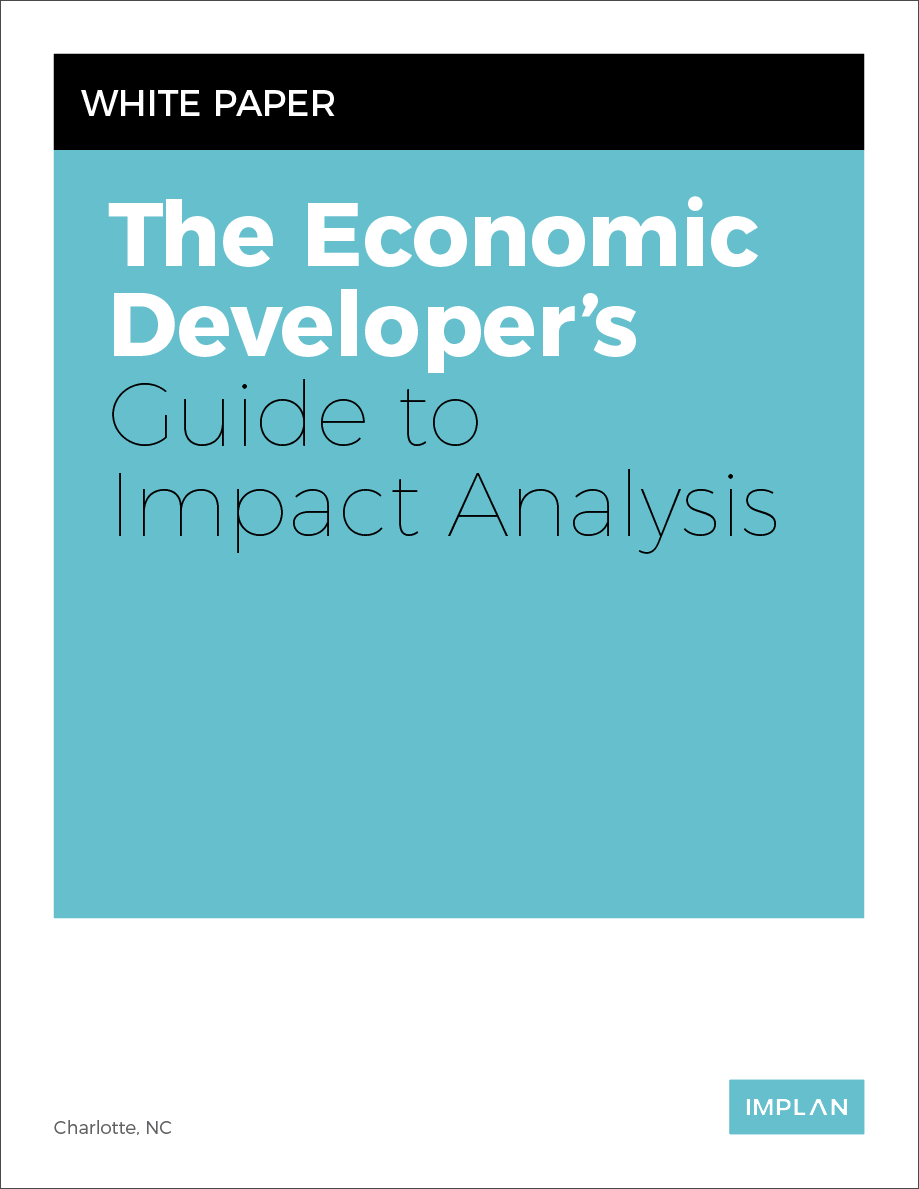Miami is expecting an economic impact of $854 million from a major event this February, but the source of that economic boom may surprise you. For the last 79 years, the Miami International Boat Show has welcomed boating enthusiasts from around the world for an annual exhibition of watersport technology, products, and recreation. According to a recent study, the economic impact felt in South Florida nearly doubles the contribution expected from the Super Bowl 54.
Rising Tides: The Economic Impact of the Miami International Boat Show
Topics: Data, Economics, Contribution Analysis, Methodology, Tourism, Impact, Economic Development
Quantify Your Economic Impact in Any Congressional District
When conducting any economic impact study, defining where an impact is felt is critical. Whether analyzing the nationwide impact of an industry or the contribution that business makes in a specific zip code, IMPLAN’s economic data and modeling provide the insight you are seeking. Data is available for all geographic regions across the U.S. including all 435 congressional districts. This means that economic impact analyses can be run in any congressional district nationwide. Advocacy groups and leaders are utilizing this data to bolster their advocacy efforts, communicate their value to elected officials, and influence legislation.
Topics: Data, Economics, Contribution Analysis, Association, Impact, Advocacy, Government, Congressional Districts
Decision makers and business leaders are constantly looking for new ways to make their organizations smarter. Economic insight is key to achieving financial goals. IMPLAN has the technology you need in order to unlock economic opportunity.
So, what is IMPLAN? IMPLAN is a platform that combines a set of extensive databases, economic factors, multipliers, and demographic statistics with a highly refined, customizable modeling system. Together, our application and robust data allows you to:
- Gain insight into an industry's contributions to a region
- Quantify the impact of a shock to an economy
- Examine the effects of an existing or emerging business
- Model the economic impacts of changes to business operations
- Study events specific to the economy of a region’s economy, and more.
IMPLAN data is aggregated from multiple sources and is compiled into a 546-sector scheme and framework. The data sources include the Bureau of Labor Statistics, U.S. Census Bureau, Bureau of Economic Analysis, and more. Non-disclosures exist within these data sources, so our team fills in the gaps left by non-disclosures. Beyond reconciling data sources and filling in for non-disclosures, we add additional value by estimating finer geographic scales—calculating more granular data based on what is existing—and providing inter-county trade flow data.
The data and platform have the ability to perform a number of detailed analyses and provide solutions to an ever-increasing amount of questions. How can IMPLAN provide economic insight for you? Start with a question that you want answered.
Topics: Data, Economics, Technology, Contribution Analysis, Methodology, Association, Tourism, Impact, Economic Development, Corporation
All industries love touting their growth and positive effect on their regions. New product offerings, business relocation decisions, or increases in employment make for tremendous headlines, but general input-output models do not account for any economic trade-offs or negative effects. So how can you ensure that the figures presented are sound? Enter net analysis. Net analysis provides a holistic look at the effects resulting from a change in production or spending in the economy, both the positive and negative.
Topics: Data, Economics, Methodology, Impact
It is that time of year again! IMPLAN Data Year 2018 is upon us. Beyond our annual improvements, you will find two significant updates to this year’s iteration of our annual data.
Topics: Data, Economics, Technology, Methodology
Much has been written regarding Amazon’s HQ2 decision and what factors ultimately led to the choice of Arlington, VA. In September 2017, Amazon requested proposals for their new headquarters in North America. Ultimately 238 cities across the U.S., Mexico, and Canada submitted bids. Amazon’s RFP stated that 8 million square feet would be required for the campus and approximately $5 billion would be invested in capital expenditures. Additionally, on-site mass transit, a skilled employee base and strong university system (to fill an estimated 50,000 jobs), and easy access to an international airport were ideal site features. However, tax incentives were the ultimate prize for the tech giant.
In order to maximize their potential offers, localities needed to understand their threshold to offer incentives. Economic impact analyses were a critical tool used by bidders for calculating the potential economic benefit that Amazon could bring to their locale, and, in turn, how significant any incentives offered could be. The analyses were a crucial step taken prior to the proposals, however they also informed actions taken after site selection.
Topics: Economics, Employment, Methodology, Impact, Economic Development, Corporation
It’s that time again! Our data team here at IMPLAN works tirelessly to ensure that IMPLAN can offer the most comprehensive wage and salary dataset possible. Thanks to their efforts, the 2018 Census of Employment and Wages (CEW) dataset is complete and now available. Because of the level of detail and historic data available, the CEW data is perfect for establishing trends and running statistical analyses.
Topics: Data, Economics, Employment, Methodology, Impact
The terms “economic impact” and “economic contribution” are often used interchangeably. However, the results they provide differ significantly. Impact analyses predict economic shifts based on change in an industry. Contribution analyses model the effects supported by an existing business or industry in a defined area. Industry contribution analyses are particularly important to groups like trade organizations or businesses that would like to determine their overall economic contribution at their current production rate.
Topics: Data, Economics, Contribution Analysis, Methodology, Association
What You Can Take Away from the New York Apple Association’s Economic Contribution Analysis
Contribution analysis is a modeling method used to estimate the value of a sector or group of sectors in a region at their current levels of production. Naturally, it is a valuable and useful tool for groups like industry associations and government entities that are evaluating the value of an industry to their community.
Topics: Data, Economics, Contribution Analysis, Association, Agriculture
What You Need to Know to Future-Proof Your Opportunity-Zone-Based Economic Impact Analyses
Regulatory standards, depending on your reading of the latest IRS Tranches and guidance, have either changed or come into clearer focus when it comes to what the CDFI Fund identifies as a "successful" Opportunity Zone (OZ) project. Regardless of your reading of IRS's latest missives, there are a few tactics worth highlighting that will ensure that the economic impact analyses describing the significance of your projects and the potential economic significance of your program (or portfolios) will stand ready for review when the time comes to evaluate their contribution to the economic well-being of your service area.
Topics: Data, Economics, Funding, Contribution Analysis, New Market Tax Credit, Methodology, "Taxes", Opportunity Zones





.png)



.jpg)


.png?width=80&name=IMPLAN_Logo_Print-Vector_NEW%20(2).png) Copyright 2025
Copyright 2025